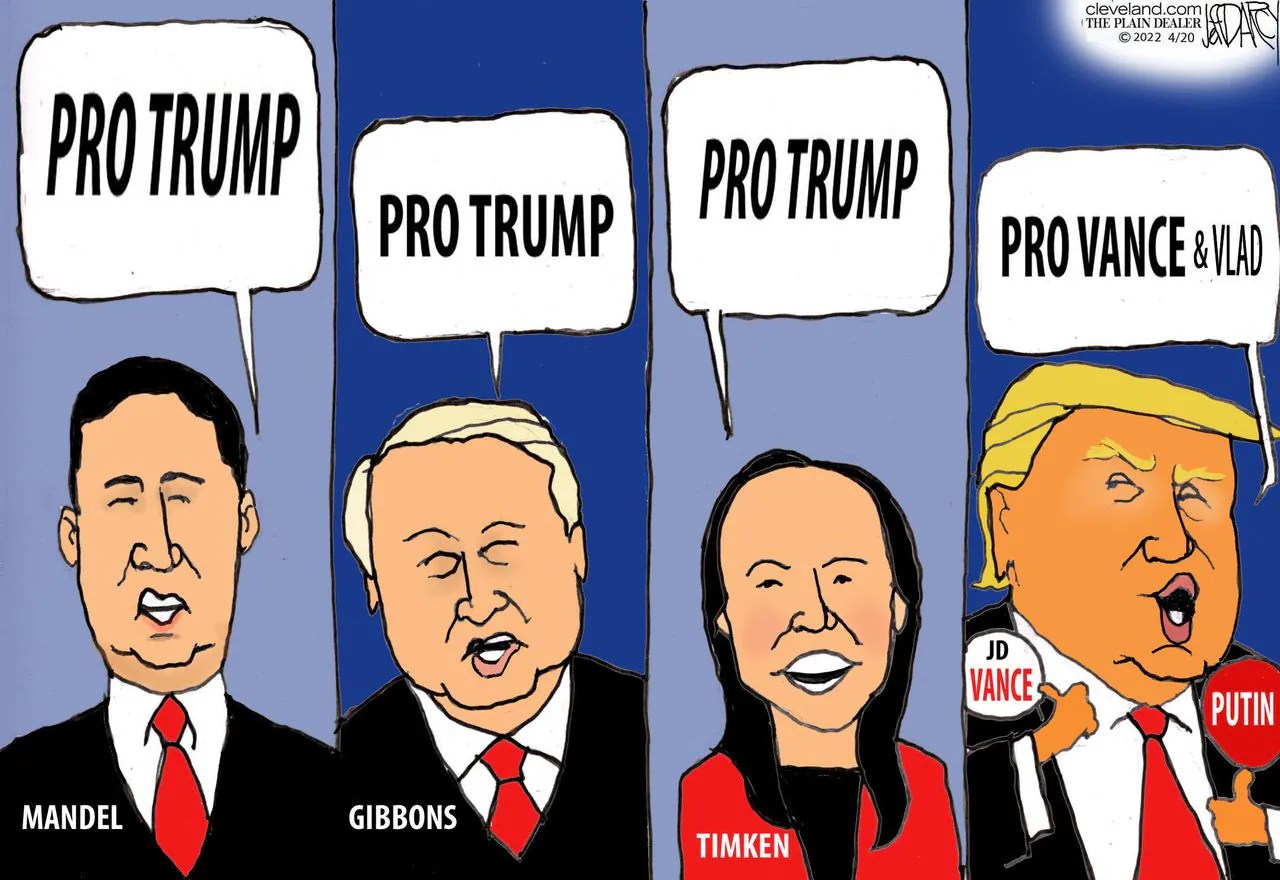The 2024 election isn’t just being fought with policy speeches and campaign rallies—it’s also a battleground for memes. And in the race for the vice presidency, few matchups have generated as much online buzz as the one between JD Vance and Tim Walz. Buckle up as we dissect the viral meme war that erupted during their debate and what it reveals about the evolving landscape of digital politics.
When Politics Gets Memed: Dissecting the Vance-Walz Debate
Remember that vice presidential debate between JD Vance and Tim Walz? It wasn’t just the political sparring that got people talking—it was the memes.
The internet erupted with hilarious (and sometimes pointed) commentary on key moments, turning both candidates into unlikely meme icons. There was Vance’s intense “fourth wall break” stare into the camera, drawing comparisons to characters like Jim Halpert from “The Office.” Then there was Walz, whose expressions throughout the debate were interpreted as “worried,” spawning countless memes that tapped into the anxieties of a nation on edge.
And it wasn’t just a few tweets—these memes went viral. Millions of views, endless shares, even a parody on “Saturday Night Live”—the Vance-Walz debate proved that in the digital age, a well-timed expression can be just as impactful as a carefully crafted soundbite.
But this meme-ification of politics goes beyond mere amusement. It reveals how visual communication—particularly humor—shapes how we perceive political figures and engage in political discourse.
The Psychology of Political Memes: Why We Can’t Stop Sharing
Those Vance-Walz memes weren’t just funny—they were psychological goldmines. Experts suggest that these viral images tapped into deeper emotions and biases, influencing how we view the candidates and the issues at stake.
Take Walz’s “worried face” meme. While some found it amusing, others interpreted it as a reflection of their own anxieties about the economy, the future, and the state of the world. This seemingly simple image became a symbol for a nation grappling with uncertainty, forging a strange sense of connection between a politician and the people he seeks to represent.
Then there’s Vance. His more composed, even stoic, demeanor during the debate didn’t quite reach the same level of meme-worthiness. Some experts believe this might have hurt him, particularly among younger, internet-savvy voters who thrive on relatable, shareable content. The lack of pro-Vance memes suggests a potential disconnect with a generation that communicates through emojis and viral trends.
This contrast highlights a crucial aspect of modern campaigning—the ability to connect with voters on a personal, relatable level. In the age of social media, where authenticity (or the appearance of it) reigns supreme, a candidate who can laugh at themselves or become the subject of a harmless meme might have an edge over one who appears stiff or out of touch.
- Learn more about the hilarious Sad Johnny Meme, and how it became viral on the internet.
- Read about the origins of the adorable Baby Hippo Meme, and how it spread like wildfire.
More Than a Laughing Matter: The Impact of Memes on the 2024 Election
While memes might seem like harmless fun, their impact on the 2024 election shouldn’t be underestimated. Here’s why:
- Memes as Political Commentary: They provide a humorous, easily digestible way to process complex political events and express opinions about candidates.
- Shaping Public Perception: Whether intentional or not, the memes circulating about Vance and Walz likely influenced how voters perceive them, amplifying existing biases and potentially swaying opinions.
- The Power of Visuals: Images are processed faster and often have a more lasting impact than text. This makes memes a powerful tool for shaping narratives and influencing voter behavior.
- Reflecting Social Divides: The types of memes created about each candidate and their popularity (or lack thereof) reflect the deep political divisions within the electorate.
The Future of Politics is Viral: What the Vance-Walz Meme War Tells Us
The Vance-Walz meme duel is a microcosm of a larger trend—the intersection of politics and internet culture. As we move closer to the 2024 election, it’s clear that memes, for better or worse, will continue to play a role in shaping political discourse.
Candidates who understand the power of online humor, authenticity, and relatability might have an edge in capturing the attention of voters, particularly younger generations who have grown up in the age of social media.
However, the rise of meme-ified politics also raises concerns about the trivialization of serious issues and the spread of misinformation. As voters, it’s more crucial than ever to develop critical media literacy skills to navigate this new landscape and engage in informed political discourse—even if it’s sparked by a meme.










